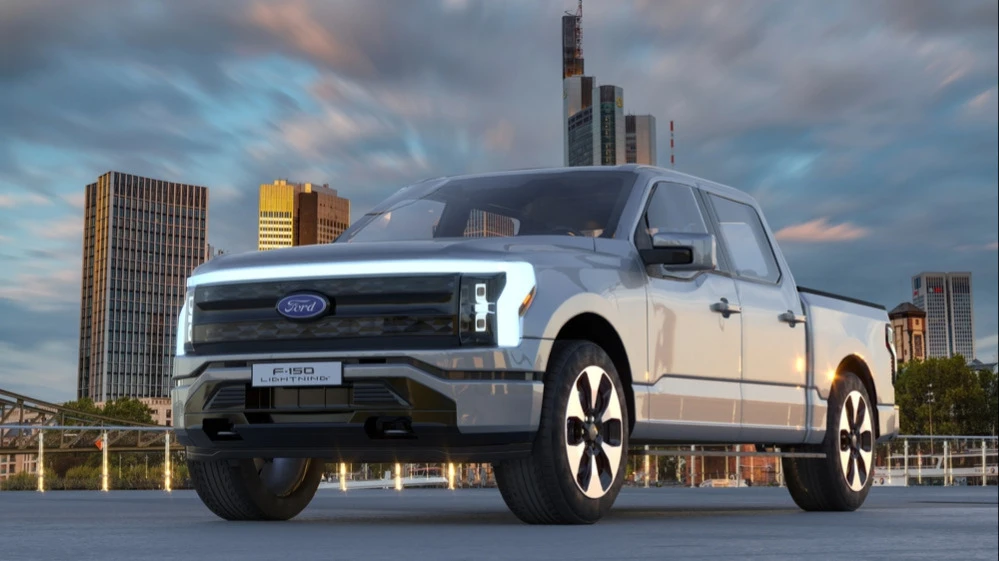Ford has reported a surge in electric car sales. Why won't this last?
Deliveries of the F-150 Lightning electric pickup truck in September were up 135% from a year ago, but Ford expects demand for electric vehicles to decline in October

Ford Motor's U.S. car sales in September were up more than 12%. At the same time, sales of electric vehicles jumped by more than 100%. Despite pressure from duties and difficulties in the electric vehicle segment, demand is holding up better than investors expected, Barron's notes. However, in October, Ford expects demand in the electric car segment to fall by half, and the company may face the issue of production cuts.
Details
Ford sold 166,003 vehicles (including electric versions) in the U.S. in September, up 12.3 percent from the same month last year, according to Barron's.
At the same time, sales of the electric crossover Mustang Mach-E reached 7,643 units, which is 121% more than a year earlier, and deliveries of all-electric pickups F-150 Lightning amounted to 3,957 units - it is 135% more than last year, the publication writes. The excitement around electric cars arose due to the abolition of tax incentives for their purchase from September 30. Many buyers were eager to buy an electric car before the $7500 federal tax credit was repealed.
Overall, Ford delivered 545,522 vehicles in the third quarter, up 8.2 percent from the same period in 2024.
Shares of Ford at the auction on October 1 rose by 2.6% to $12.3. Since the beginning of the year, the auto concern's shares have grown by about 21%. Import duties, contrary to investors' fears, did not seriously hit the company's sales and profits in 2025, notes Barron's.
How duties have been affected
Ford estimates the impact of duties on operating profit at $2 billion in 2025. By comparison, the company's operating profit was about $10 billion in 2024 and is expected to be $7 billion in 2025. In fact, that $2 billion is the cost the company didn't pass on to consumers. Translated, that amounts to about $1,000 for every car sold, Barron's writes.
New car sales in the U.S. were up about 4% year-over-year at the end of August, with prices remaining relatively stable. The average transaction price for a new car in August was about $49,000, up 2.6% from a year earlier, the publication said.
What will happen to the demand for electric cars
Ford CEO Jim Farley said Tuesday that he expects demand for all-electric cars in the U.S. to nearly halve after the federal tax credit for electric vehicle purchases ends, from 10-12% in September to 5% in October, CNBC reported. At the same time, he noted that hybrid models are more understandable to consumers and will continue to be bought.
"I think the industry will remain vibrant, but it will be much smaller than we expected. Especially with the changes in emissions policy and the elimination of the $7500 rebate," Farley said at a Ford event in Detroit on Sept. 30. - We'll know in a month. I wouldn't be surprised if the share of electric vehicle sales in the U.S. drops to 5 percent in October."
Ford's CEO also noted that changes at the federal level require the auto industry, including Ford, to adapt. He said the company will now have to decide what to do with battery plants and capacity to produce electric vehicles. "We'll fill them, but it's going to be more difficult because we used to have a predictable four-year policy," Farley said. - Now the policy has changed ... We're all going to have to rebuild. And I believe it will be good for the country, but it's another source of pressure."
This article was AI-translated and verified by a human editor
